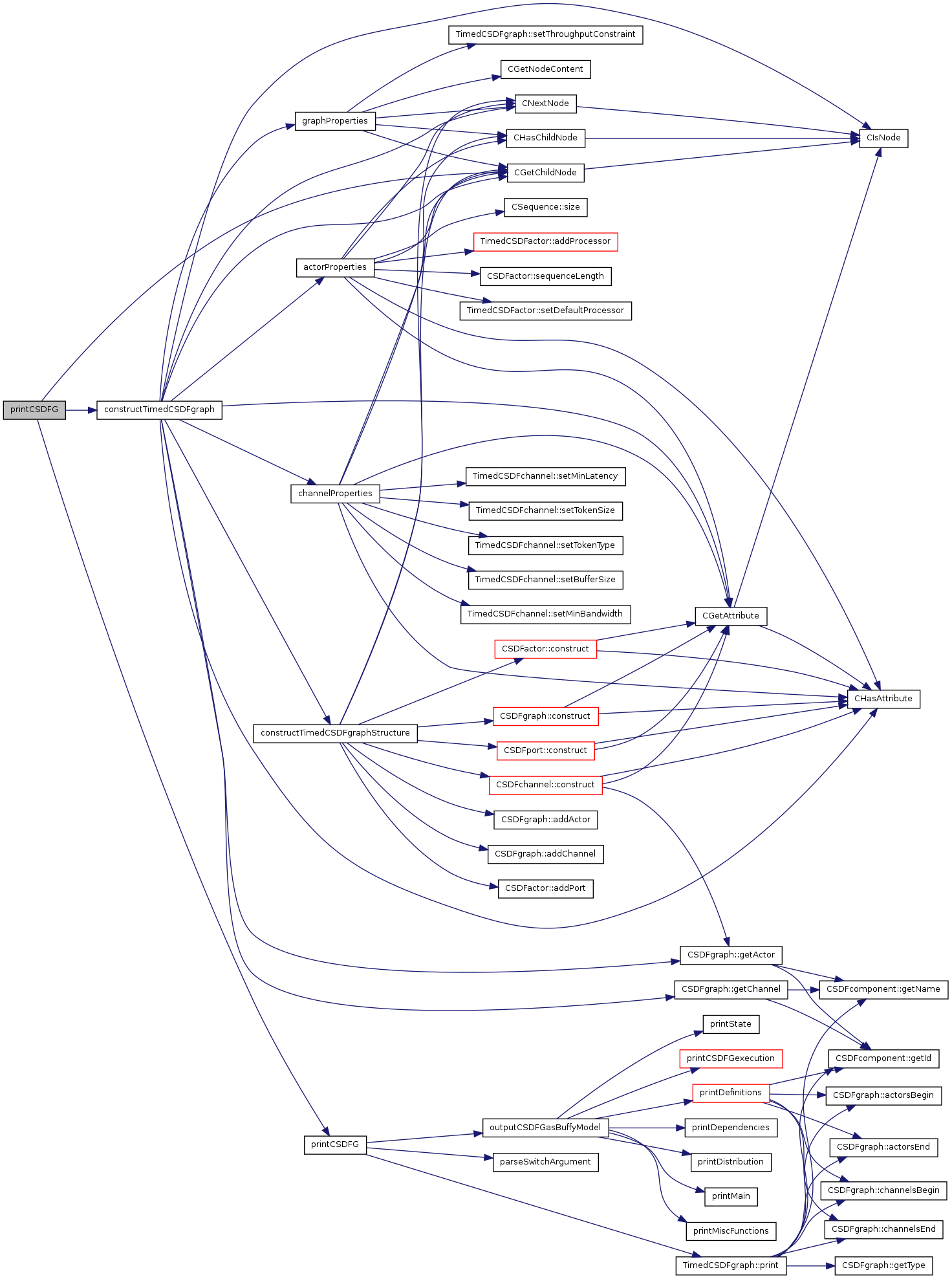#include "sdf3print.h"#include "sdf/sdf.h"#include "csdf/csdf.h"
Classes | |
| struct | _CPair |
| struct | _Settings |
Typedefs | |
| typedef struct _CPair | CPair |
| typedef list< CPair > | CPairs |
| typedef CPairs::iterator | CPairsIter |
| typedef struct _Settings | Settings |
Functions | |
| void | helpMessage (ostream &out) |
| CPairs | parseSwitchArgument (CString arguments) |
| void | parseCommandLine (int argc, char **argv) |
| CNode * | loadApplicationGraphFromFile (CString &file, CString module) |
| void | initSettings (int argc, char **argv) |
| void | printCSDFG (TimedCSDFgraph *g, CPairs &format, ostream &out) |
| void | printCSDFG (ostream &out) |
| int | main (int argc, char **argv) |
Variables | |
| Settings | settings |
Typedef Documentation
| typedef CPairs::iterator CPairsIter |
Function Documentation
| void helpMessage | ( | ostream & | out | ) |
helpMessage () Function prints help message for the tool.
References DOTTED_VERSION, and TOOL.
| void initSettings | ( | int | argc, | |
| char ** | argv | |||
| ) |
initSettings () The function initializes the program settings.
References helpMessage(), loadApplicationGraphFromFile(), MODULE, and parseCommandLine().
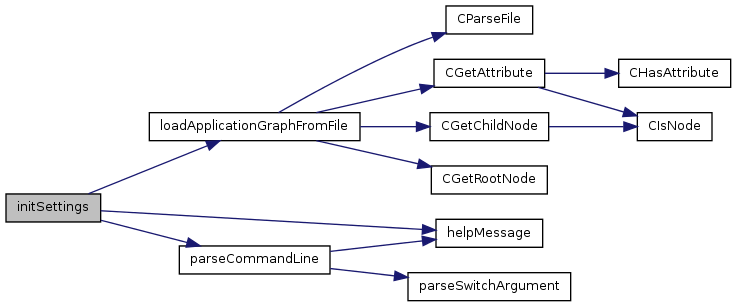
loadApplicationGraphFromFile () The function returns a pointer to an XML data structures contained in the supplied file that describes the SDFG.
References CGetAttribute(), CGetChildNode(), CGetRootNode(), and CParseFile().
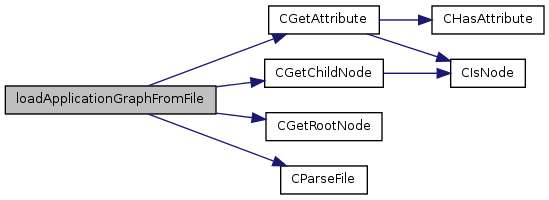
| int main | ( | int | argc, | |
| char ** | argv | |||
| ) |
main () It does none of the hard work, but it is very needed...
References initSettings(), MaxPlusAnalysis::out, Settings::outputFile, and printCSDFG().
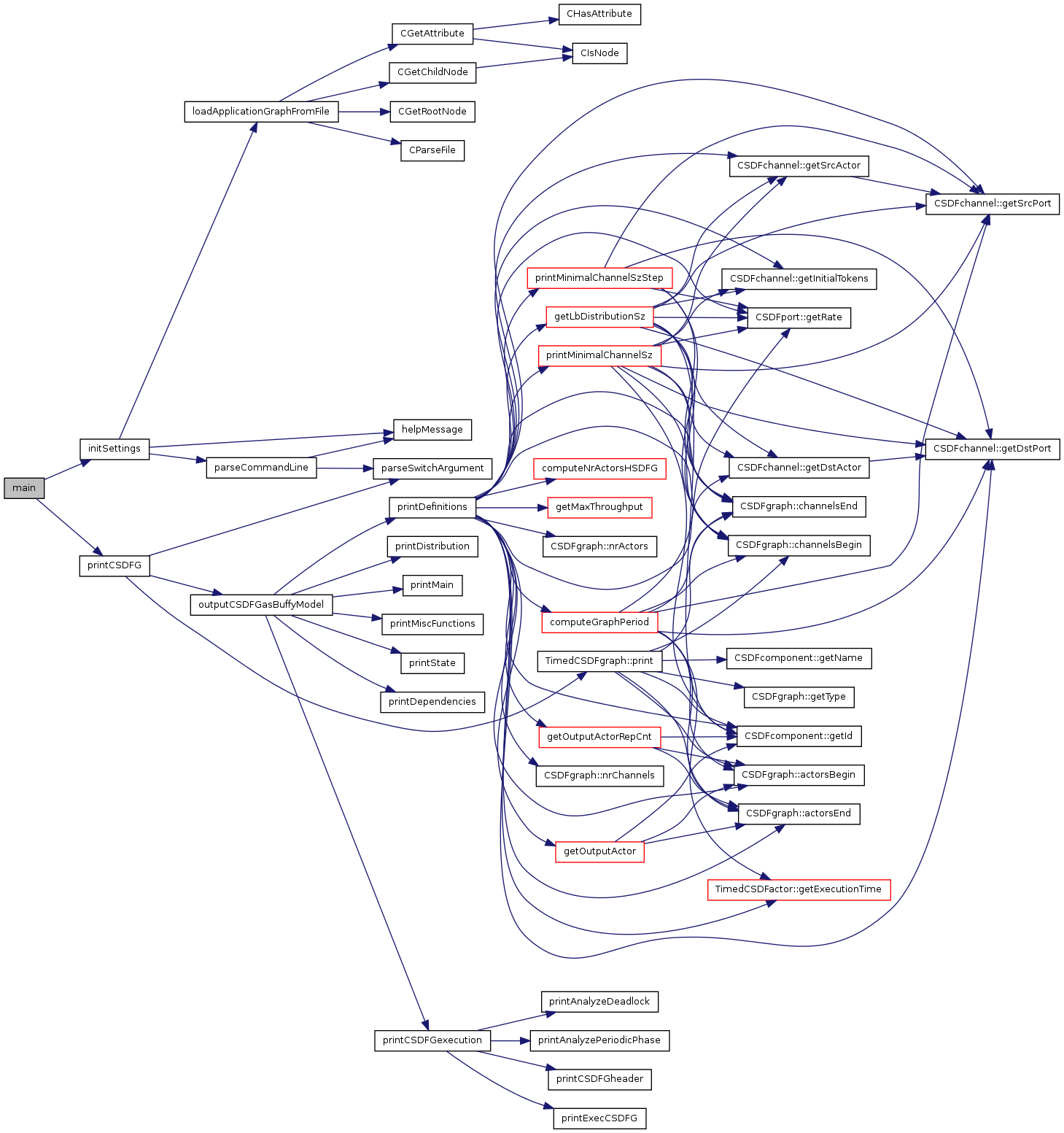
| void parseCommandLine | ( | int | argc, | |
| char ** | argv | |||
| ) |
parseCommandLine () The function parses the command line arguments and add info to the supplied settings structure.
References helpMessage(), Settings::outputFile, and parseSwitchArgument().

parseSwitchArgument () The function parses the string 'arguments' into a sequence of (arg, value) pairs. The syntax as as follows:
pair := key(value) arg := pair,pair,...
Note: value may be a pair itself, but this is not expanded into a set of pairs (i.e. nested pairs are not supported).
References c, _CPair::key, and _CPair::value.
| void printCSDFG | ( | TimedCSDFgraph * | g, | |
| CPairs & | format, | |||
| ostream & | out | |||
| ) |
printCSDFG () The function outputs the CSDF graph in the requested format.
References _CPair::key, outputCSDFGasBuffyModel(), parseSwitchArgument(), TimedCSDFgraph::print(), and _CPair::value.
Referenced by main(), and printCSDFG().
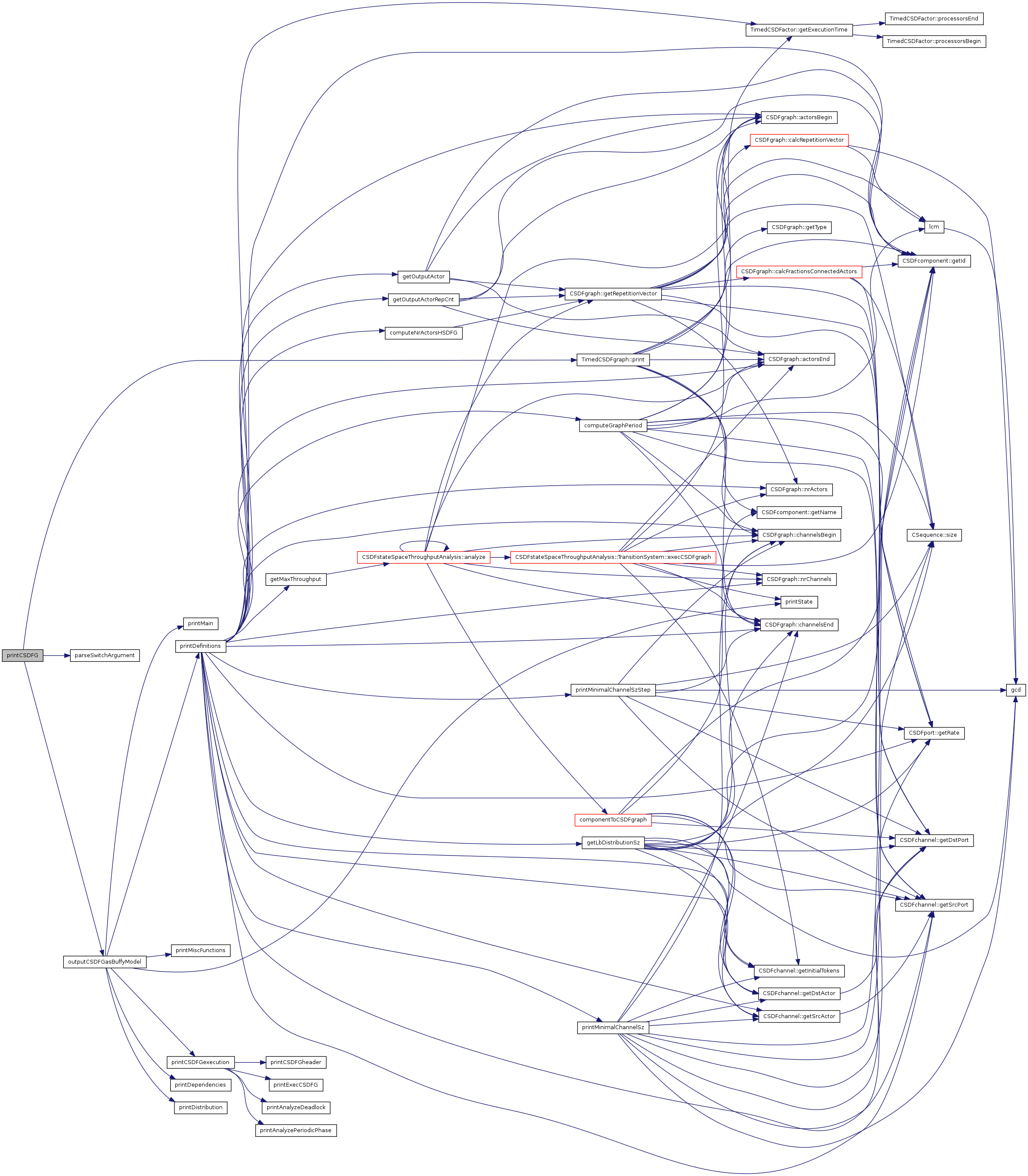
| void printCSDFG | ( | ostream & | out | ) |
printCSDFG () The function outputs the CSDF graph.
References CGetChildNode(), constructTimedCSDFgraph(), and printCSDFG().
